Genomics nation
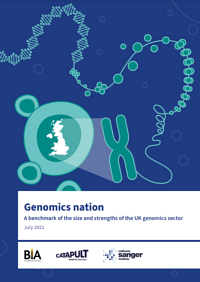
To help investors and policy makers understand the opportunities Genomics presents in the UK, in July 2021, we produced a benchmarking study of the size and strengths of the UK Genomics sector.
“The United Kingdom is a global hub for life sciences and for genomic medicine in particular, thanks in part to our long-life sciences legacy – from the work of Darwin and then Franklin, Crick and Watson a century later, to the likes of Illumina, Oxford Nanopore and Genomics England.
The unique structure of the NHS and early investments in initiatives such as the 100,000 Genomes Project is allowing us to harness advances in genomic research capabilities at scale and pace for patient benefit.
That means that patients now have access to predictive, preventative and personalised care on the NHS, free of charge. Ours is the first national healthcare system in the world to embed genomics into front line healthcare in this way. For many patients, this means an improved quality of life that would be unimaginable without the concentration of clinical and research capability we have at our fingertips here in the UK.” - Nicola Blackwood, Chair of Genomics England and former Minister for Innovation
For more information, please get in touch with Dr Emma Lawrence, Senior Policy and Public Affairs Manager at the BIA.
Published in partnership with:
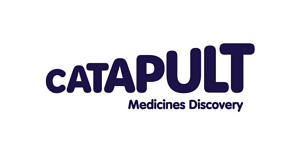

Foreword
Foreword from Steve Bates OBE Chief Executive Officer, BioIndustry Association
The UK’s strength in life sciences – and genomics in particular – has never been more evident. Our genomic surveillance of the SARS-CoV-2 virus, cornerstoned by the world-leading Wellcome Sanger Institute, has led the way worldwide throughout the pandemic. With the emergence of new variants in the UK and elsewhere, the importance of strong genomic capabilities has escaped few.
Beneath the high-profile headlines however, there is a hive of activity developing new innovations that extend far beyond COVID-19 and promise to change healthcare as we know it. These innovations are driven by the UK’s rapidly growing genomics ecosystem: start-ups and SMEs; scaling companies; active investors; world-leading academics; a strong skills-base; unique data resources; leading research institutes; and the NHS, all joined together by their mission to improve patients’ lives.
The ecosystem builds on the UK’s long legacy in genomic research, but we would not be where we are today without long-term public investment into the sector by successive governments. Major initiatives such as the 100,000 Genomes Project and the UK Biobank are fundamental pillars of the UK’s genomics ecosystem today. The Government is right to continue building on our global competitive advantage both through new world-leading initiatives such as Our Future Health, and through strategies such as Genome UK and the newly launched Life Sciences Vision.
The Vision recognises that the UK is in a unique position to leverage the capabilities in our genomics ecosystem to drive economic growth as the country recovers from the pandemic. The new £200m Life Sciences Investment Programme is a sign of the Government’s commitment to this agenda, and it has already helped attract an £800m commitment to UK life sciences from the Abu Dhabi sovereign wealth fund Mubadala. This wave of new public and private investment promises to unlock a new era of genomic innovation and economic growth. As this report shows, start-ups and SMEs are the key drivers of this innovation and growth, and are essential partners to truly delivering the promise of genomic technologies.
The BioIndustry Association (BIA), as the UK’s trade association for innovative life science organisations, the Medicines Discovery Catapult (MDC), as the UK’s catapult centre for medicine research and innovation, and the Wellcome Sanger Institute, as the UK’s leading genomics research institute, are proud to celebrate our genomics sector together by publishing this report. It shows the shape and size of the UK’s genomics sector, describes the foundations that are key to its success, and outlines the tremendous opportunity that the sector represents for the wealth and health of the UK.
I hope it will serve to inform and excite potential new investors and the policy makers that are key to the ongoing growth of genomics in the UK, and I hope you all enjoy reading it.
Foreword from Adrian Ibrahim Head of Technology Transfer and Business Development, Wellcome Sanger Institute
The UK has a peerless heritage as a genomics pioneer. The work of Watson and Crick at Cambridge – building upon Maurice Wilkins’ and Rosalind Franklin’s X-ray diffraction studies at King’s College London – led to the elucidation of the DNA double-helix structure. John Sulston’s vision to map the human genome, initially applying technology developed by Fred Sanger, led to the establishment of the Wellcome Sanger Institute which was the single largest contributor to the Human Genome Project, mapping a third of the entire genome.
The UK continued to lead the world with its vision to generate whole genome sequences in the hundreds of thousands, and subsequently millions, through the formation of Genomics England, exploiting the massively parallel sequencing technology developed by Shankar Balasubramanian and colleagues. Most recently, the UK has demonstrated its world-leading capabilities through the astounding achievements of the COVID-19 Genomics UK Consortium (COG-UK), which is mobilising public, private and charitable research sectors to pioneer large-scale, real time whole-genome sequencing of SARS-CoV-2 to understand viral transmission and evolution, and to inform public health responses and vaccine development.
We have, however, lagged our academic peers in major research hubs such as California and Boston when it comes to converting our exceptional research into the discovery, development and ultimately commercialisation of genomic technologies. We are now beginning to redress this imbalance.
At Sanger, we continue to drive large scale genomics research such as the Human Cell Atlas, which aims to create comprehensive reference maps of all human cells and has the potential to impact almost every aspect of biology and medicine. Through a combination of public and private investment, the UK has grown an impressive base of genomics SMEs with Europe’s largest genomics cluster based at the Wellcome Genome Campus and many other companies distributed across the UK. Additionally, we have seen successful scaling of UK genomics companies, supported by growing investor appetite – though more needs to be done in this space.
The current wave of innovation across sequencing, quantum computing, disease modelling, artificial intelligence and genome manipulation creates ever more opportunities to grow the UK’s position as a genomics powerhouse. Our world leading academia, a heightened focus on entrepreneurship, exceptional genomics data infrastructure, governmental support for the life science sector, increasing availability of risk capital and of course, our exceptional NHS, collectively create a unique and enviable platform for the UK to exploit technology advances and drive economic growth through disruptive innovation in the genomics sector. Alignment across our capabilities will ensure that our genomics industry is regarded as world leading, and that the UK is the preferred destination for genomics investments.
Foreword from Professor Chris Molloy Chief Executive Officer, Medicines Discovery Catapult
Genomics is a foundation stone of modern Medicines Discovery. Our ability to identify disease linkages, select cohorts of potential patients and validate new drug targets is now unprecedented.
The UK has deployed these powerful tools at scale across academia and the NHS. We have the opportunity to learn, apply and benefit from these deployments to drive wealth and health across the UK. We also have the responsibility to use them safely and efficiently, recognising their limitations and enabling other techniques to follow a path into widespread clinical and industry use.
We have the responsibility to make consented and relevant linked datasets and bio samples available to those who can create material benefit for patients by driving better diagnostics and drugs, founded on relevant genetic information. From its HQ in the North West, MDC continues to industrialise and drive the adoption of new multi-omic technologies for the benefit of drug discovery innovators, patients and technology firms nationwide.
Emblematic of this has been its role in the co-ordination of the Lighthouse Lab network of PCR COVID-19 labs as part of the UK’s pandemic response. This has brought together the NHS, academia and industry to deliver the largest diagnostics lab project in UK history; deploying a clinically relevant, genomically-driven patient testing system at massive pace and scale – and passing all positives smoothly into sequencing at the Wellcome Sanger Institute. It is a high-profile example of how the UK can team up and benefit from technology when there is a collective goal, with shared expertise, purpose and perspective.
MDC’s core ability to translate tools and techniques into products and services helps to achieve this and provides much-needed access to these early-stage tools for biotechs, drug-hunting academics, diagnostics companies and technologists. We should celebrate the progress made and opportunities created, whilst remaining relentless in our pursuit of further progress in order to do more for the patients and innovators who rely on us.


Key takeaways

Features of the UK genomics ecosystem:
- Strong legacy in genomics – from the solving of the DNA double helix structure in 1953 to the completion of the 100,000 Genomes Project in the 2010s
- World-leading research institutes and academia, including the renowned Wellcome Sanger Institute
- Unique data resources, such as the UK Biobank and Our Future Health
- The National Health Service (NHS) – the largest united healthcare system in the world, uniquely positioned to deliver genomic innovations to patients
- Active industrialisation of new techniques and technologies through Catapult centres
- A thriving community of entrepreneurs, scaling SMEs, global companies and an active investor base, working in collaboration with academia and the NHS
The UK genomics sector:
- 154 companies
- 5119 employees
- 5bn+ market cap
- £3.3bn private investment raised since 2011
- £151m public R&D grants since 2011
- £2bn in IPOs since 2011
- Projected market cap of over £50bn by 2040
Published in partnership with:


The UK genomics ecosystem
The UK excels in genomics. The long legacy in genomics stretches from the elucidation of the DNA double helix structure by Francis Crick and James Watson in Cambridge in 1953, through the first sequencing of a genome by Frederick Sanger in the 1970s, the establishment of the renowned Sanger Institute (the single largest contributor to the Human Genome Project) in the 1990s, to the launch and completion of the 100,000 Genomes Project in the 2010s and today’s rapidly growing genomic sector.
The growth of the sector is driven by a thriving community of entrepreneurs, scaling SMEs, global companies and an active investor base. This community is nurtured by academic excellence at scale, research institutes, the NHS, government support, and unique data resources such as the UK Biobank and Genomics England. Together, they form the UK genomics ecosystem.
Growing the sector further and enabling patient access to genomic technologies and treatments are high on the Government’s policy agenda. Through the publication of the Life Sciences Vision in Summer 2021, the Government launched the Life Sciences Investment Programme, bringing £1bn in new public and private funding to the UK’s most promising life sciences companies. The Vision identifies genomics as a key priority and commits building the most advanced and integrated genomic ecosystem in the world. These commitments build on the publication of Genome UK: The future of healthcare in 2020, which aims to enable genomics to greatly improve the mental and physical wellbeing of the UK population and millions more worldwide. As part of the commitment in the NHS Long Term Plan to harness the power of genomic testing to rapidly diagnose rare diseases, whole exome sequencing is provided to critically ill babies and children. The recent introduction of the NHS Genomic Medicine Service (GMS) aims to integrate genomic medicine into routine NHS care by 2025.
The COVID-19 pandemic has further demonstrated the strength of the UK’s genomic capabilities. The Lighthouse Labs – the biggest diagnostic lab network in British history – was set up at pace utilising volunteers from across the scientific community and is now employing several thousand diagnostic scientists, operating 24/7, to inform and enable to Government’s response to the pandemic. The COVID-19 Genomics (COG) UK Consortium is delivering large-scale, rapid whole-genome sequencing of SARS-CoV-2 to public health agencies, the NHS and the Government. Through COG-UK, the UK sequences a significant amount of the SARS-CoV-2 genomes worldwide, thereby leading the world in early variant detection.
Genomics has applications beyond healthcare too. With a growing global population and escalating climate change, there is an urgent need to utilise the power of genomics to address the challenge of food security and monitor our natural environment to protect biodiversity. Esteemed UK research institutes are at the forefront of this research. For example, the Earlham Institute in Norwich use genome analysis to catalogue and mine genetic diversity of crops and livestock to improve production and resilience of our food supply. Altogether, the UK genomics ecosystem is leading the way for a healthier and more sustainable world.
Published in partnership with:


The UK’s genomics sector
Genomics companies play a crucial role in the UK’s genomics ecosystem. These companies translate early innovations into medicines, diagnostics and services that can transform patients’ lives, and drive economic growth through the creation of highly skilled jobs and by attracting private investment.
The BIA, MDC and the Wellcome Sanger Institute have identified 154 genomics companies in the UK. They have been identified as UK genomics companies through three key criteria: they are headquartered in the UK, develop or deliver clinically accredited products and services, and genomics is a core aspect of their business. After identifying the 154 companies, we commissioned Beauhurst, a searchable database of the UK’s high-growth companies, to analyse the dataset presented in this report.
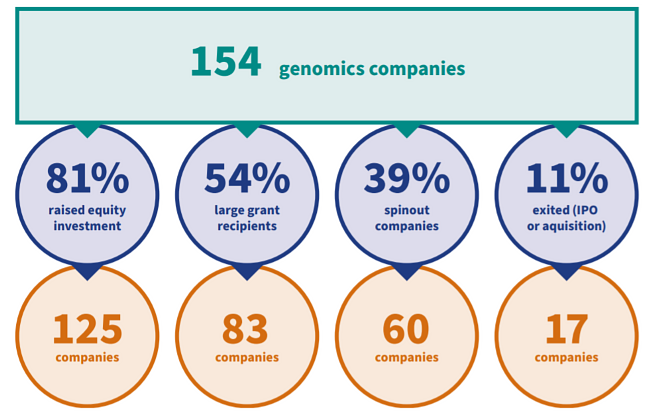
The UK genomics sector has achieved an average of 12% year-on-year growth in company numbers between 2011 and 2020. A significant number of these companies have been spun out of academic institutions; spinouts account for 39% (60 companies) of the total genomics population as of May 2021. By comparison, spinouts only account for 3% among the UK’s high-growth companies across all sectors, indicating the significant role that academic institutions play in the development of genomics companies.
Another notable aspect of genomics companies is that most of them are very early-stage companies. Seed-stage companies account for 45% of the genomics companies, whereas the general high-growth population is only 36% seed stage. This indicates the relative youth of the UK’s genomics sector.
With a current market capitalisation of less than £10bn, Beauhurst’s conservative projection suggests that the total market capitalisation of UK genomics sector in 2040 will be over £50bn. The chart on page 11 includes a conservative total market capitalisation of the genomics companies based on equity-transaction derived valuations. It uses the mean valuation of companies in any given year based on equity transactions combined with the predicted number of deals at live companies to project the market capitalisation over time.
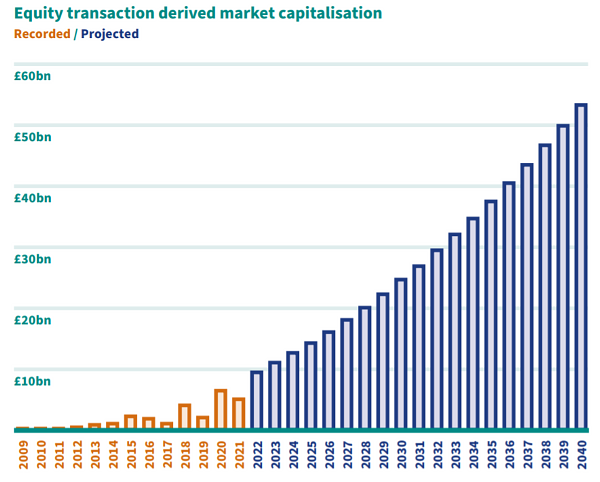
Published in partnership with:


Genomic hotspots
Genomics companies are most prevalent in the East of England, London and the South East, with these three regions accounting for 72% of the UK’s active genomics company population.
However, Northern Ireland has the single highest number of employees in the genomics sector due to the presence of Randox in County Antrim. Randox develops clinical diagnostics and provides reagents and laboratory equipment.
The 15 genomics companies in Scotland employ an estimated 213 people. Edinburgh and Glasgow each play host to four active genomics companies.
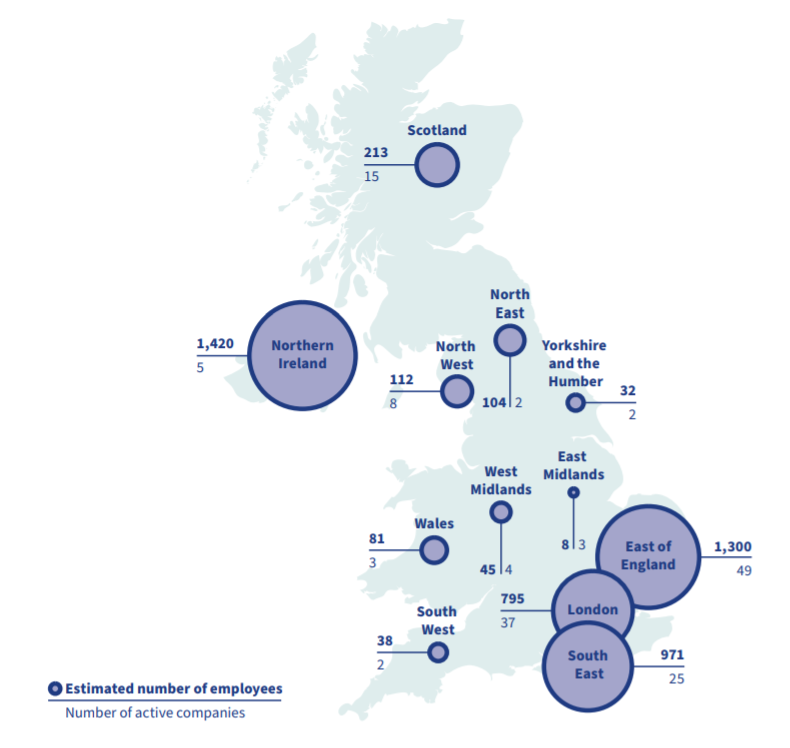
Published in partnership with:


UK genomics – the future
In 1765, James Watt perfected earlier designs of the steam engine and in doing so set the Industrial Revolution in motion. What that innovation did for manufacturing and living standards, Frederick Sanger’s innovation in sequencing technology could do for healthcare and life expectancy.
This report shows that the UK is at the cutting edge of the genomics revolution that is shaping the 21st Century. High-growth companies, ambitious state-backed initiatives and world-leading institutions are being combined in the UK to create a truly unique opportunity.
The scope and breadth of these advances are impossible to predict or value. The £50bn market capitalisation of the sector projected by 2040 in this report is only a small indication of what can be achieved. With continuing investor and government support, the confidence in and capabilities of the UK’s genomics sector are growing to the point when it will be able to deliver great dividends to investors, the economy and patients nationally and internationally.
Published in partnership with:


.png)
.png)
